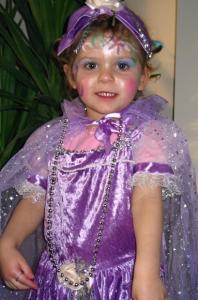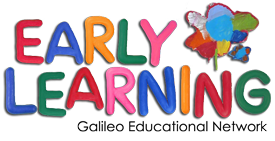

Language skills flourish when children are surrounded by books, songs, rhymes and many opportunities for imaginative play.
Dr. Jane Hewes, Chair of the Early Childhood Program at Grant MacEwan University, says children develop complex narratives in their pretend play. In her article Let the Children Play: Nature’s answer to Early Learning, Dr. Hewes says children not only generate language suited to different perspectives and roles, they begin to link objects actions, and language together in combinations and narrative sequences.
Emergent literacy skills are developed from babyhood. Parents can:
- Start a conversation. Invite your child to think of things to talk about, and ask questions that encourage them to express ideas and observations.
- Use voice intonations when playing, and ask your child questions, inviting him to point, name or move toward whatever interests them.
- When talking to your child, give her enough time to contribute. It is also a good idea to repeat what she says, and then add a bit more to the conversation. This not only helps her learn more about what you’re discussing, it’s also encouraging to know she’s being heard.
- Read to your child. You can also make up stories to go with the pictures, and invite your child to do the same.
Dr. Bryan Kolb is a psychology professor and founding researcher with the Canadian Centre for Behavioural Neuroscience, based out of the University of Lethbridge. He is considered one of the world’s most influential neuroscientists, and was the first to show how the growth of new brain cells can restore psychological and behavioural function.
In this video, Dr. Kolb talks about how reading to your child is one of the most powerful ways you can positively influence his or her brain development.
Downloads
Create a learning environment that supports language and literacy development.
Dr. Jane Hewes has tips on how adults can create an environment that allows children to explore their environment and learn through play.
Many children’s books address mathematical ideas in fun and interesting ways. Simply reading them, however, won’t instill deep mathematical understanding. But when kids can model the stories and are encouraged to find ways to generalize the mathematical ideas the stories contain, books can provide great opportunities for deepening mathematical understanding.

